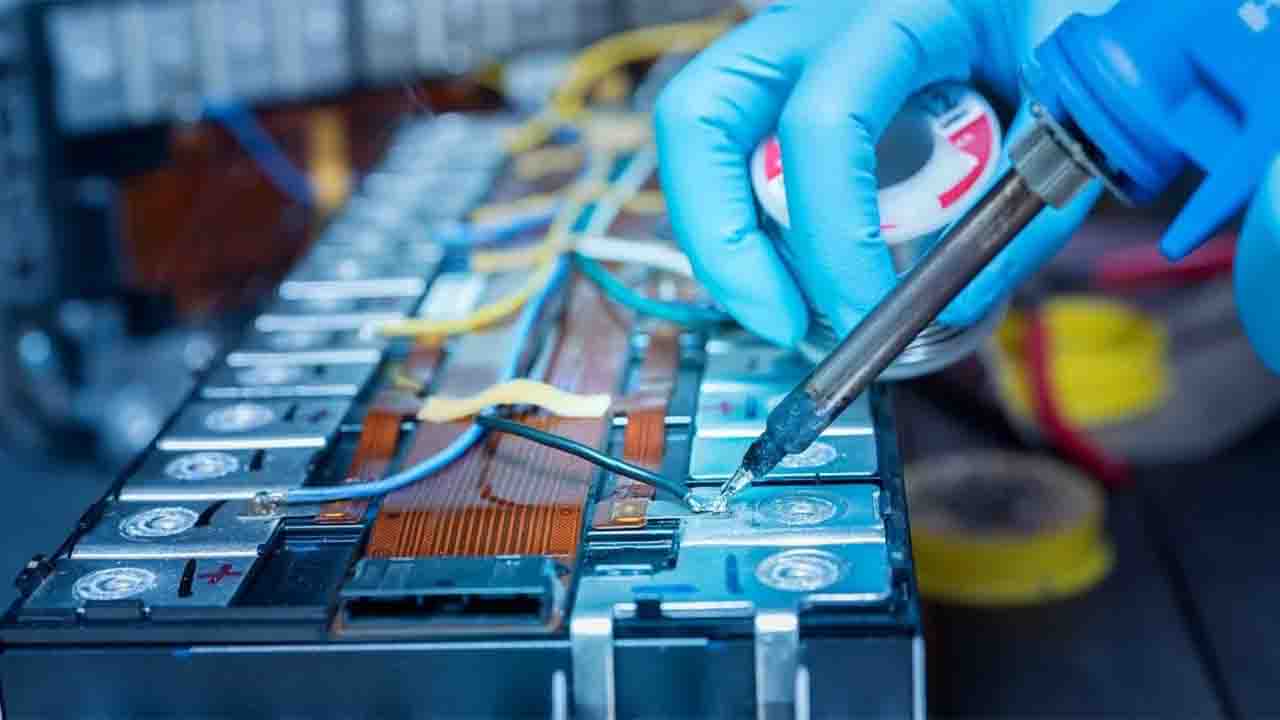(Commonwealth) _ A Bengaluru-based startup has recently made headlines by launching India’s first commercial Li-ion cell line, a significant milestone in the country’s push towards greater self-sufficiency in the field of renewable energy. The startup, called ‘Epsilon Advanced Materials,’ is a pioneering company that is focused on producing advanced materials for energy storage and clean energy applications. With this recent development, the company aims to play a crucial role in the Indian government’s vision of making the country a global hub for advanced battery manufacturing.
Lithium-ion batteries are a type of rechargeable battery commonly used in portable electronics, electric vehicles, and renewable energy storage systems. The global market for lithium-ion batteries has been rapidly growing, driven by the increasing adoption of electric vehicles and the rising demand for renewable energy storage solutions. According to a report by Grand View Research, the global lithium-ion battery market is expected to reach $129.3 billion by 2027, growing at a compound annual growth rate (CAGR) of 18.0% from 2020 to 2027.
India, too, has been witnessing a surge in demand for lithium-ion batteries, driven by the country’s ambitious plans to shift towards clean energy sources. The Indian government’s National Electric Mobility Mission Plan (NEMMP) aims to achieve 100% electric vehicle (EV) sales by 2030, and the country’s renewable energy capacity is set to reach 175 GW by 2022. However, despite this growing demand, India still depends on imports for nearly 80% of its lithium-ion battery requirements, mostly from countries such as China, South Korea, and Japan.
The launch of India’s first commercial Li-ion cell line by Epsilon Advanced Materials is, therefore, a significant development in the country’s quest for greater self-sufficiency in advanced battery manufacturing. The company’s Li-ion cell line has been designed to cater to a wide range of applications, including electric vehicles, renewable energy storage, and portable electronics. The cells are highly efficient, with a high energy density of up to 200 Wh/kg, and can be customized to meet specific requirements of different applications.
Epsilon’s Li-ion cell line has been developed using advanced manufacturing techniques and is based on a proprietary technology that ensures high quality and consistency in the cells’ performance. The company has set up a state-of-the-art production facility in Bengaluru, which has a capacity of producing 200,000 cells per day, making it one of the largest Li-ion cell manufacturing facilities in the country.
The launch of the Li-ion cell line by Epsilon Advanced Materials has been widely welcomed by industry experts, who see this development as a significant step towards the establishment of a robust and self-sufficient battery manufacturing ecosystem in India. The move is expected to reduce India’s dependence on imports, create employment opportunities, and boost the country’s manufacturing sector.
The Indian government has also been actively promoting the development of advanced battery manufacturing in the country. In March 2019, the government launched the ‘National Mission on Transformative Mobility and Battery Storage,’ with the aim of making India a global hub for EVs and advanced battery manufacturing. The mission aims to support the development of a complete EV ecosystem, including charging infrastructure, battery manufacturing, and recycling facilities.
The launch of Epsilon’s Li-ion cell line is expected to give a major boost to the government’s mission by creating a domestic supply chain for advanced batteries. The company has already partnered with several leading EV manufacturers and renewable energy companies to supply its Li-ion cells, and it plans to expand its customer base in the coming years. However, despite the significant potential of the Indian market for advanced batteries, there are several challenges that need to be addressed to ensure the growth of the industry.








